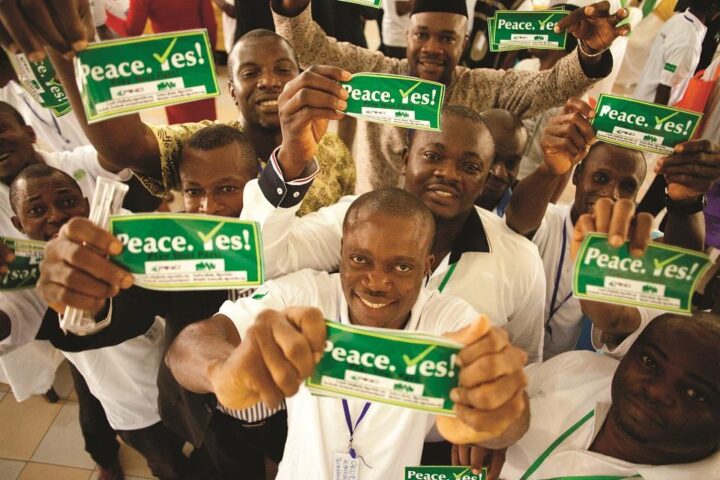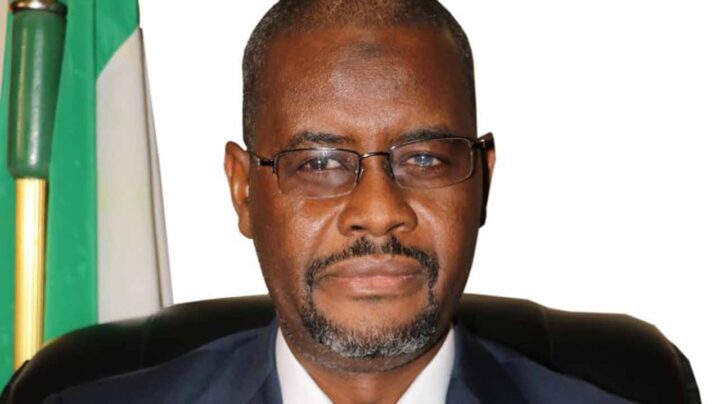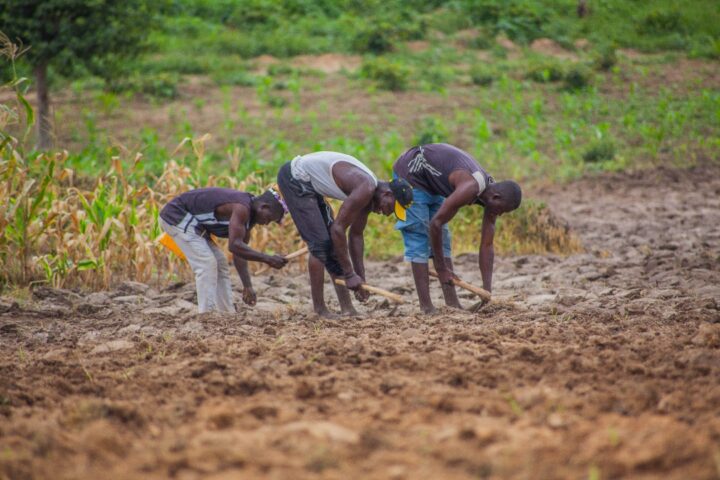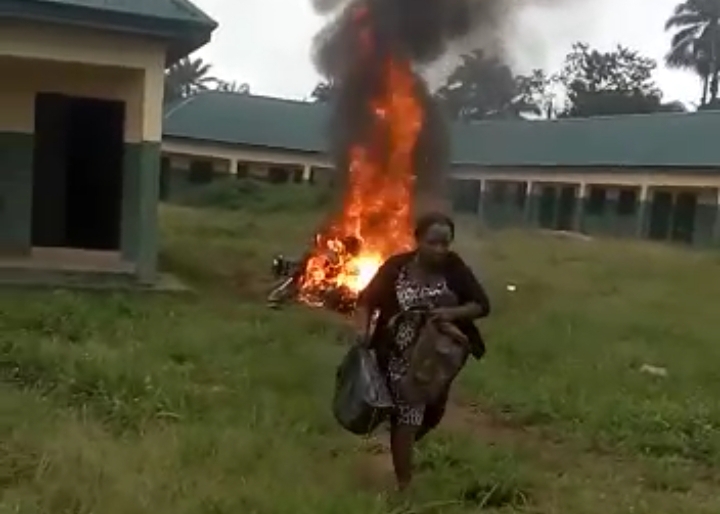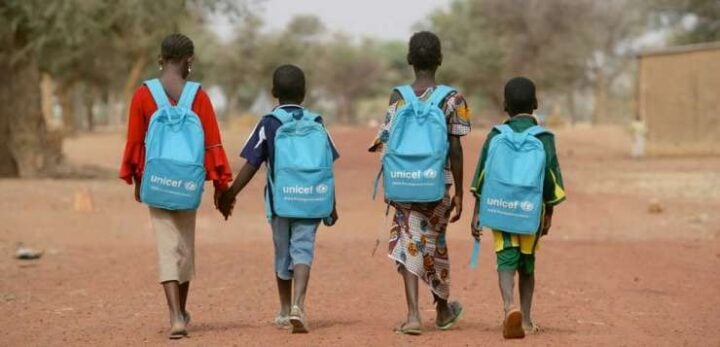Members of the PIND Foundation Peace4Peace (P4P).
War nearly broke out after an armed militant group erected a flag and signposts on a boundary line between Sangana and Igbematoro communities in Brass LGA, Bayelsa state, claiming the area for the latter.
Sangana and Igbematoro, hitherto friendly neighbours, were on tenterhooks, not sure of what the other was planning.
Tension rose and nerves stretched to the limit while residents of the two communities avoided one another. They both feared an attack was imminent. There was panic on both sides as the aged ones, women and children were looking for escape routes.
“We were practically at war with a neighbouring community, Igbematoro, over boundary lines,” Noel Ikonikumo, chairman of the fishing union in Sangana, said.
Advertisement
“The situation was so bad that residents from each community stopped visiting the other. We did not fetch water or fish from their streams; they avoided ours too.”
On the verge of collision, elders in Sangana initiated peace talks. The sit-down prevailed on all the actors and calmed the frayed nerves. The issues were resolved with “no victor, no vanquished”.
Ikonikumo said war was averted as a result of peacebuilding and conflict management training that members of the community had received from the Foundation for Partnership Initiative in the Niger Delta (PIND).
Advertisement
“After PIND’s training, we initiated peace talks and resolved our issues. These days, cordial relations have resumed between both communities,” he said.
“Almost everywhere you go in the nine Niger Delta states, you will meet villagers who will tell you of the peace actors and peace initiatives of a non-governmental organisation (NGO) that are helping to foster harmonious relationships and averting conflicts in the region.”
In Imo state, the murder of a woman on her farm threatened the peace of a community. The deceased was beheaded and her aggrieved relatives accused her husband’s family of being the masterminds.
“The dispute escalated to the point of threatening the peace within the community,” says Tina Anya, a member of PIND’s Peace4Peace (P4P).
Advertisement
But for the quick intervention of peace actors, the warring families sheathed their swords.
“We intervened and visited each warring party to understand their grievances. We then spoke to them about the need for peace and pointed out the toll it took on the entire community. We also explained how sustained conflict could lead to even more deaths without solving the problem or restoring lost life,” Anya recalled.
“Our intervention succeeded as the two families agreed to pursue peace and let bygones be bygones.”
In five local government areas in Imo, PIND said it has carried out peacebuilding training as a conflict prevention and mitigation measure.
Advertisement
“In 2022, we held this training in about five local governments in Imo state: Mbaitoli, Okigwe, Onuimo, Ahiazu Mbaise, and Isiala Mbano,” Anya added.
“We maintain relationships with these communities even after the training to get feedback on their progress and to support them when necessary. PIND has also been of great help to the P4P. We can carry out these interventions and step-down training with PIND’s support.”
Advertisement
WHAT’S IN PIND’S PEACEBUILDING PROGRAMME
According to Tunji Idowu, executive director of PIND, the foundation’s peacebuilding programme focuses on enabling a peaceful environment in the Niger Delta where its people can thrive and experience economic growth.
Advertisement
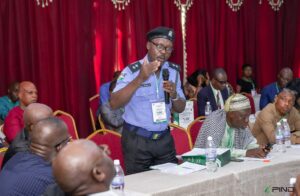
He said the organisation fosters sustainable peace partnerships within the region, creates and strengthens existing structures working towards ending and preventing conflicts and providing support for economic development.
“Our interventions are centred around conflict prevention, conflict management, and peacebuilding through two interrelated projects: the integrated peace and development unit (IPDU) and the partners for peace (P4P) network,” Idowu said.
Advertisement
“We utilise conflict early warning, research, and data analysis products to catalyze proactive responses to prevailing and emerging conflict risk factors and drivers of instability in the Niger Delta.”
The peacebuilding programme contributes to the United Nations Sustainable Development Goal (UN SDG) 16 of peace, justice, and strong institutions. The foundation boasts over 11,000 peace actors across the region.
Idowu added that the IPDU and the P4P have amplified the efforts of local peace agents and worked with them to respond in a more coordinated and targeted manner to the rapidly changing conflict dynamics in the region.
“Interestingly, some of these peace agents are traditional rulers who apply their wealth of institutional experience to manage communal and local conflicts,” he explained.
“To consolidate this critical role, traditional rulers (community chiefs) serve as conflict mediators and positive influencers at the grassroots level, PIND initiated prevent councils.
“The central goal is to strengthen the community peacebuilding structures by engaging traditional rulers as positive influencers and conflict mediators.”
The peace actors have access to and provide data for PIND’s conflict monitoring resources such as the early warning early response (EWER) platform and the peace map, which other local peace actors, security and government agencies, and private organisations actively use.
The prevent councils were inaugurated in December 2022 in three states: Akwa Ibom, Delta, and Cross River to address the ongoing communal and land boundary disputes that had negatively impacted the socio-political and economic livelihood of residents in several communities in those states.
In its 2022 annual report, the foundation said almost 2,000 stakeholders utilised PIND’s peace data and analysis during the year. In the same year, 1,233 P4P peace actors mitigated 163 emerging conflicts in their communities, helping to contribute to reduced conflict within the region and helping to change its narrative.
According to the report, 1,628 people utilised PIND’s peace data and analysis products to guide various peacebuilding-related actions.
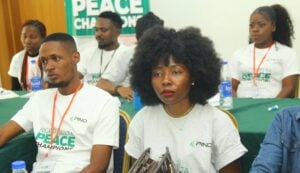
“While we continued strengthening existing peace structures, PIND also focused on creating new ones through strategic partnerships and encouraging community ownership,” the report says.
Rick Kennedy, chairman of the board of trustees of PIND, is elated about the achievements of the Foundation in peacebuilding and conflict reduction.
He highlighted efforts made in 2022 to consolidate the gains recorded through the efforts of peace actors. “In June, we set up the Niger Delta peace champions, a network of young people (from 18 to 35 years), passionate about making a difference in their communities through peacebuilding,” Kennedy said.
“These peace champions received capacity-building training in peacebuilding, conflict resolution, and management on how to provide data to and utilise the EWER platform. Their activities are complementary to that of the P4P network.”
In the middle of last year, PIND signed a memorandum of understanding (MOU) with the Ministry of Niger Delta Affairs (MNDA) to develop a regional peacebuilding infrastructure that will consolidate the activities of all peacebuilding stakeholders in the region to address conflict and security issues.
In October, PIND and the MNDA formally advanced work on the Niger Delta peacebuilding strategy (NDPRS) and inaugurated a technical working group (TWG) to design and implement the strategic document. PIND and the MNDA led the TWG, which includes representatives from Akwa Ibom, Delta, Bayelsa, Edo, Ondo, Imo, and Abia states.
Idowu said PIND’s overall peacebuilding efforts are geared towards preventing violence to resolve conflicts, reducing fragility as a breeding ground for violence, and creating opportunities for long-term development. Since conflicts are a natural part of social change.
TESTIMONIES
Ayo Okotie, subchapter coordinator, P4P network, in Ughelli south LGA, Delta state, recounts how efforts at conflict prevention have paid off, especially ahead of the 2023 elections.
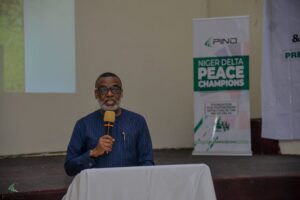
“As a member of the prevent committee in my state, I took part in a PIND training on resource mobilisation. This training has helped me in managing my NGO, Neserok Development Initiative. I learned how to access and maximise readily available resources, whether cash or kind,” he said.
“With the 2023 elections approaching, we carried out capacity-building training for youth and women in conflict prevention and resolution.
“Apart from my work through Neserok, as a P4P member, I also apply my peace-building skills within my community. When there are clashes between farmers and herders, I will mitigate them.
“In one of these incidents, after mediation, the Fulani herdsman replaced the farmer’s broken cassava stems with fresh ones.”
Raphael Offiong, a conflict resolution and management consultant, said PIND is creating an enabling environment for peacebuilding in the Niger Delta.
He was engaged to set up the prevent council in Cross River state. The goal of the project was to establish traditional rulers as positive influences and conflict mediators within their communities by empowering them with the requisite skills to respond to conflict drivers in collaboration with other stakeholders at the state, local, and community levels.
The project identified five communities as its targets: Yakurr, Obubra, Biase, Ikom, and Odukpani.
“However, based on my experience as a conflict mediator and being native to the area, I understood the issues. I pushed for the addition of one more community. My overall goal was to save lives, as I knew that the region desperately needed a peacebuilding intervention in this form,” Offiong said.
“At our introductory visits to the kings and chiefs of these communities, we were warmly welcomed, and the project was received as a long overdue initiative.
“The traditional leaders cooperated with us, and we trained them on peacebuilding, conflict sensitivity and management, and PIND’s early warning-early response (EWER) system.
“Early feedback we have received from them shows they have been applying the knowledge they have acquired. The traditional leaders praised the skills they have received as it has worked well in resolving communal disputes without input from the local government.”
